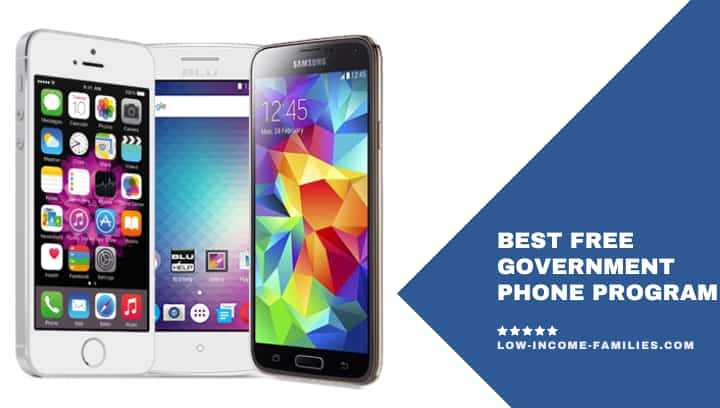In the heart of the United States lies Missouri, a state where the pursuit of quality dental care is a significant concern for many residents.
As dental procedures continue to incur substantial costs, accessing necessary treatments such as cosmetic procedures and dental implants can pose significant financial challenges for individuals and families.
However, amidst these challenges, there exists a beacon of hope in the form of free dental grants.
For Missourians seeking to enhance their smiles and improve their oral health through cosmetic dentistry or dental implants, free dental grants offer a vital lifeline.
These grants not only alleviate the financial burden of expensive dental procedures but also ensure that individuals have access to the transformative benefits of modern dentistry.
In this comprehensive guide, we delve into the landscape of free dental grants in Missouri, exploring the avenues available for obtaining financial assistance for cosmetic grants and implants.
From eligibility criteria to application processes and available resources, we provide invaluable insights to help individuals navigate the journey toward achieving their dental health goals without the burden of prohibitive costs.
Join us as we embark on a journey through the realm of free dental grants in Missouri, empowering individuals to smile brighter and embrace a future filled with confidence and oral wellness.
Low-Income Free Dental Grants in Missouri
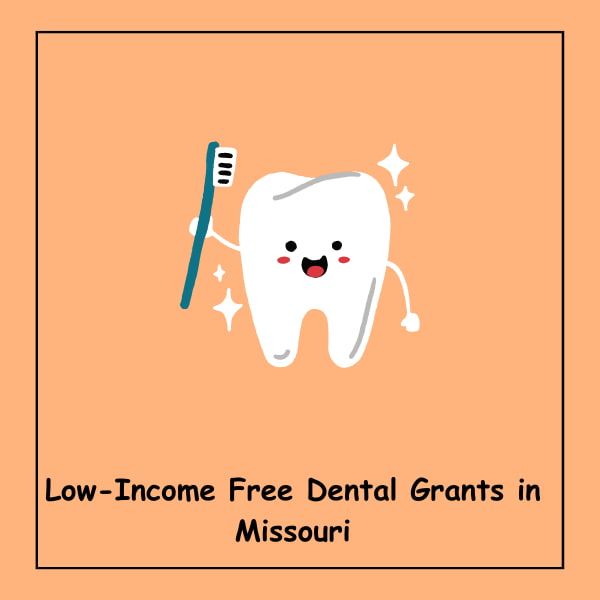
Low-income individuals in Missouri face significant challenges in accessing essential dental care due to financial constraints.
Fortunately, several initiatives aim to address this issue by offering free dental grants specifically tailored to support individuals and families with limited financial resources.
These grants cover a wide range of dental services, including preventive care, restorative treatments, and even cosmetic procedures, ensuring that low-income residents can access comprehensive dental care without worrying about the associated costs.
One notable program that provides free dental grants to low-income individuals in Missouri is the Missouri Department of Health & Senior Services.
This program focuses on promoting oral health among vulnerable populations, including low-income families, seniors, and individuals with disabilities.
Through partnerships with dental clinics and community organizations, the Missouri Department of Health & Senior Services offers free or low-cost dental services to eligible individuals, helping them maintain good oral health and overall well-being.
Additionally, nonprofit organizations such as Delta Dental and the Dental Lifeline Network also play a crucial role in providing free dental grants to low-income residents in Missouri.
These organizations collaborate with dental professionals and volunteers to offer discounted or pro bono dental treatments to individuals who cannot afford them.
By leveraging resources and partnerships within the community, these programs ensure that no one is denied access to dental care due to financial limitations.
Furthermore, it’s essential to highlight the impact of these free dental grants on the overall health and quality of life of low-income individuals in Missouri.
Access to dental care not only prevents oral diseases and discomfort but also contributes to better overall health outcomes.
By addressing oral health disparities among low-income populations, free dental grants promote equity in healthcare access and help create healthier communities across Missouri.
Dental Grants for Dental Work in Missouri for Underserved
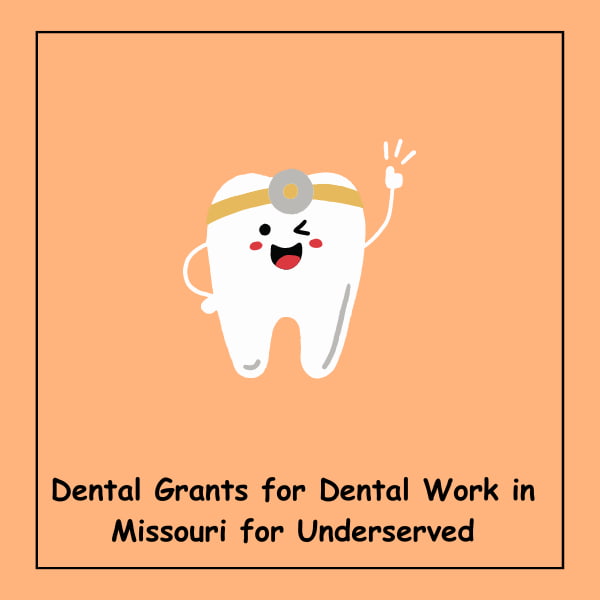
Dental Grants for Dental Work in Missouri for Underserved Communities play a crucial role in addressing disparities in access to dental care among vulnerable populations.
Underserved communities, including rural areas, minority groups, and individuals with disabilities, often face barriers to accessing quality dental services due to factors such as geographic isolation, socioeconomic status, and lack of insurance coverage.
However, several initiatives in Missouri aim to bridge this gap by offering dental grants specifically designed to meet the needs of underserved populations.
One prominent example of a program addressing the dental needs of underserved communities in Missouri is the Missouri Dental Association (MDA).
The MDA works tirelessly to expand access to dental care for underserved populations by providing financial support to dental clinics and organizations serving these communities.
Through grants and partnerships with local healthcare providers, the MDA ensures that residents of underserved areas have access to essential dental services, including preventive care, screenings, and treatment for dental conditions.
Furthermore, dental schools in Missouri, such as A.T. Still University – Missouri School of Dentistry & Oral Health and the UMKC School of Dentistry, play a vital role in addressing the needs of underserved communities through their outreach programs.
These schools often operate mobile dental clinics or community dental centers that offer free or low-cost dental services to individuals in underserved areas.
By bringing dental care directly to these communities, dental schools help overcome barriers such as transportation and lack of access to traditional dental facilities.
Additionally, nonprofit organizations like Give Kids a Smile (GKAS) and Missouri Missions of Mercy (MOM) organize dental clinics and events specifically targeting underserved populations.
These events provide free dental services, including cleanings, fillings, and extractions, to individuals who may otherwise go without care.
By mobilizing volunteers and resources to serve underserved communities, these organizations help improve oral health outcomes and promote dental equity across Missouri.
Who Is Eligible For Dental Grants in Missouri?
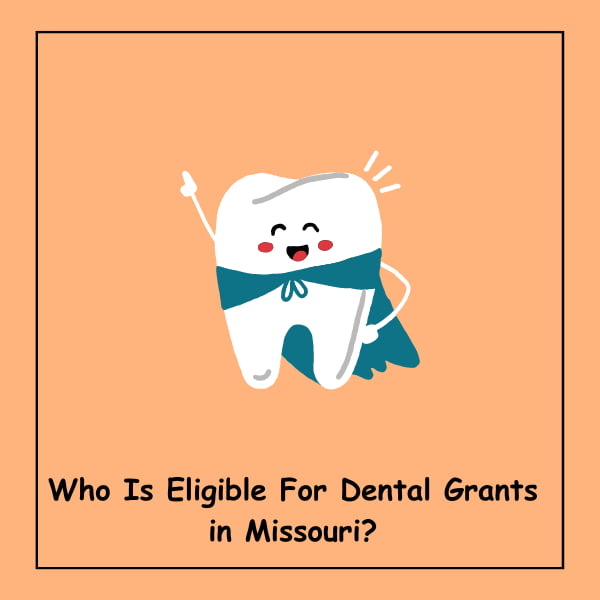
Eligibility for dental grants in Missouri varies depending on the specific program or organization offering the grants.
Generally, individuals who are considered underserved, low-income, or belong to vulnerable populations may qualify for these grants.
This includes individuals without dental insurance, seniors, persons with disabilities, and residents of rural or underserved areas.
Eligibility criteria may also consider factors such as income level, household size, and medical necessity. Some programs may require applicants to provide documentation of financial need or proof of residency in Missouri.
Moreover, certain dental grant programs in Missouri may target specific demographics or populations, such as children, pregnant women, veterans, or individuals with certain medical conditions.
For example, programs like Give Kids a Smile (GKAS), may focus on providing dental care to children from low-income families, while the Donated Dental Services (DDS) program may prioritize individuals with disabilities or seniors who cannot afford dental care.
It’s essential for individuals seeking dental grants in Missouri to carefully review the eligibility requirements of each program to determine their eligibility and ensure they meet the necessary criteria for application.
Additionally, some programs may have limited funding or resources, leading to competitive application processes where meeting eligibility requirements does not guarantee acceptance into the program.
Therefore, applicants should thoroughly understand the eligibility criteria and application process for each dental grant program they are considering and be prepared to provide any required documentation or information to support their application.
Are There Any Free or Low-Cost Dental Clinics in Missouri?
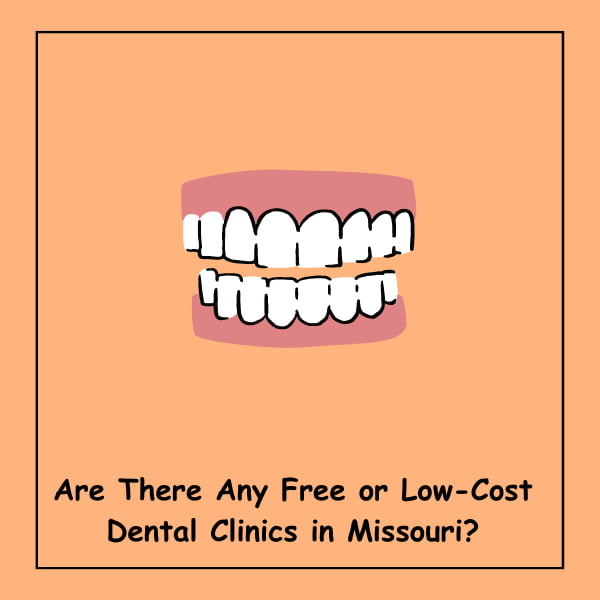
Yes, there are several free or low-cost dental clinics in Missouri that provide essential dental services to individuals who may not have access to traditional dental care.
These clinics may be operated by nonprofit organizations, community health centers, or dental schools.
Services offered at these clinics often include preventive care, dental exams, cleanings, fillings, and extractions. Some clinics may also offer sliding fee scales or discounted rates based on income level.
Additionally, dental schools in Missouri may operate clinics where dental students provide supervised dental care at reduced rates.
Individuals seeking free or low-cost dental care in Missouri can inquire about available services at local community health centers, nonprofit clinics, or dental schools in their area.
Are There Any Local Organizations/Charities that Help with Dental Costs In Missouri?
Yes, there are several local organizations and charities in Missouri that provide assistance with dental costs to individuals in need.
These organizations may offer financial aid, vouchers, or subsidies to help cover the cost of dental treatments, procedures, or preventive care.
Some organizations may focus on specific populations, such as children, seniors, or individuals with disabilities, while others may serve the general population.
Examples of local organizations and charities that help with dental costs in Missouri include community foundations, religious organizations, and nonprofit dental clinics.
Individuals in need of assistance with dental costs can inquire about available resources and support services through local social service agencies or by contacting these organizations directly.
Eligibility Requirements for Dental Grants in Missouri
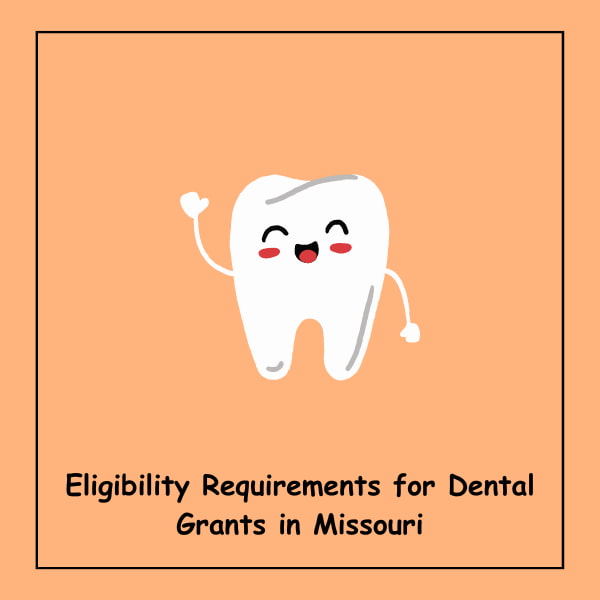
- Residency: Most dental grant programs in Missouri require applicants to be residents of the state. Proof of residency, such as a valid driver’s license or utility bill, may be necessary to demonstrate eligibility. Some programs may prioritize individuals residing in specific counties or regions within Missouri.
- Income Level: Many dental grant programs target individuals and families with low incomes. Applicants may need to provide documentation of their income, such as pay stubs or tax returns, to verify eligibility. Income eligibility thresholds may vary depending on the program and may be based on federal poverty guidelines or other income criteria.
- Vulnerable Populations: Certain dental grant programs prioritize serving vulnerable populations, including seniors, individuals with disabilities, children, and pregnant women. Eligibility may be based on factors such as age, disability status, or pregnancy. Some programs may specifically target veterans or individuals experiencing homelessness.
- Insurance Status: Some dental grant programs may require applicants to be uninsured or underinsured. Individuals with limited or no dental insurance coverage may be given preference in the selection process. However, some programs may also assist individuals with dental insurance who still face financial barriers to accessing care.
- Medical Necessity: In some cases, eligibility for dental grants may be based on medical necessity. Applicants may need to provide documentation from a healthcare provider indicating the need for specific dental treatments or procedures. This could include evidence of dental conditions or diseases that require treatment to maintain oral health.
- Special Circumstances: Certain dental grant programs may consider special circumstances when determining eligibility. This could include recent unemployment, domestic violence situations, or other financial hardships that impact an individual’s ability to afford dental care. Applicants may be asked to provide explanations or documentation of their special circumstances.
- Age Requirements: Some dental grant programs may have age restrictions for eligibility. For example, programs targeting children may only accept applicants under a certain age, while others may focus on serving seniors. Applicants should review age requirements carefully to ensure they meet the criteria for the specific program they are applying to.
Document Requirement for Dental Grants in Missouri
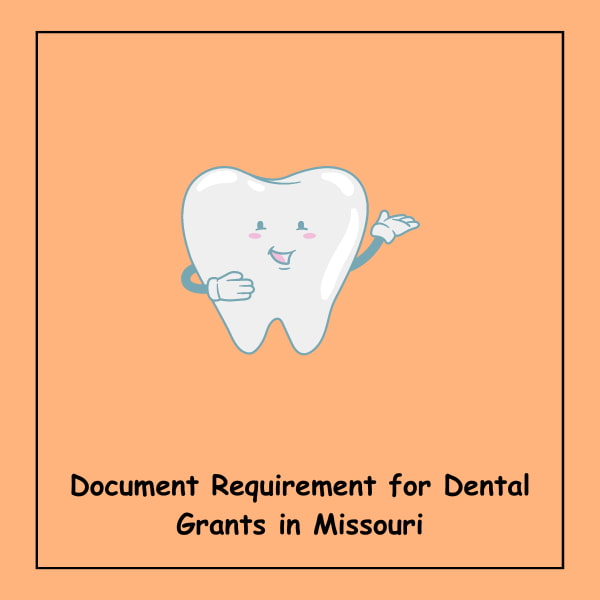
- Proof of Residency: Applicants may need to provide documentation proving their residency in Missouri, such as a valid driver’s license, utility bill, or lease agreement. Some programs may require additional proof of residency, such as voter registration or property ownership documents.
- Income Verification: Many dental grant programs require applicants to submit documentation of their income to verify eligibility. This could include recent pay stubs, tax returns, or statements of government assistance. Some programs may also accept alternative forms of income verification, such as letters from employers or social service agencies.
- Insurance Information: Applicants may be asked to provide information about their dental insurance coverage, if applicable. This could include details about the type of insurance, coverage limits, and out-of-pocket expenses. Individuals without dental insurance may still be eligible for dental grants, but they may need to provide a statement indicating their uninsured status.
- Medical Records: In cases where eligibility is based on medical necessity, applicants may need to submit medical records or documentation from a healthcare provider supporting their need for specific dental treatments or procedures. This could include x-rays, treatment plans, or referrals from dentists or physicians.
- Application Form: Applicants will typically need to complete an application form provided by the dental grant program. This form may require personal information, details about income and insurance, and explanations of dental needs. Some programs may offer online application options, while others may require paper applications submitted by mail or in person.
- Supporting Documentation: Depending on the dental grant program, applicants may need to submit additional supporting documentation, such as letters of recommendation, proof of special circumstances, or other relevant materials. This could include documentation of hardships, disabilities, or other factors impacting an individual’s ability to access dental care.
- Consent Forms: Applicants may need to sign consent forms allowing the dental grant program to access their medical and dental records, verify information provided on the application, and communicate with healthcare providers. These forms may be required to comply with privacy regulations and ensure that applicants are aware of how their information will be used and shared during the application process.
How Do You Apply for a Dental Grant in Missouri?
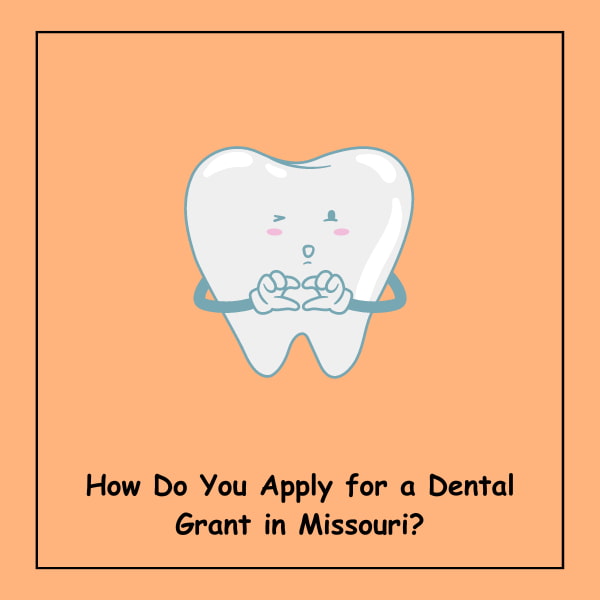
- Research: Begin by researching available dental grant programs in Missouri to determine which ones align with your eligibility criteria and dental needs. Websites of dental associations, government agencies, and nonprofit organizations often provide information about available grants and application processes.
- Review Eligibility: Carefully review the eligibility requirements for each dental grant program to ensure you meet all criteria before applying. Pay close attention to residency, income, insurance, and other eligibility factors specified by each program.
- Gather Documentation: Collect all required documentation, including proof of residency, income verification, insurance information, medical records, and any other supporting materials specified by the dental grant program.
- Complete Application Form: Fill out the application form provided by the dental grant program accurately and completely. Provide all requested personal information, details about your dental needs, and any supporting documentation as required.
- Submit Application: Submit your completed application form and all supporting documentation to the dental grant program by the specified deadline. Ensure that all documents are submitted according to the program’s instructions to avoid delays or disqualification.
- Follow-up: After submitting your application, follow up with the dental grant program as needed to ensure that your application is received and processed correctly. Be prepared to provide additional information or documentation if requested by the program.
- Wait for Notification: Once your application has been submitted, wait for notification from the dental grant program regarding the status of your application. This may include approval, denial, or requests for further information.
- Receive Grant: If your application is approved, you will receive notification from the dental grant program regarding the details of your grant award. Follow any instructions provided to access the grant funds and schedule dental treatments or procedures as needed.
Dental Grants In Missouri – DDS Programme
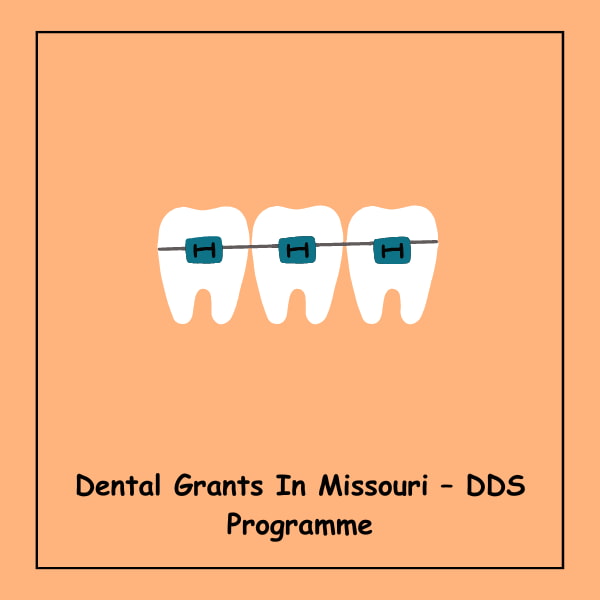
- Dental Implant Grants in Missouri: Within the DDS (Donated Dental Services) program in Missouri, individuals in need of dental implants can receive assistance. Dental implants, which provide a permanent solution for missing teeth, often come with a significant cost. Through the DDS program, eligible individuals, including seniors, disabled individuals, and veterans, may qualify for dental implant grants. These grants cover part or all of the expenses associated with dental implant procedures, ensuring accessibility for those in need.
- Cosmetic Dental Grants in Missouri: The DDS program in Missouri may also offer grants for cosmetic dental procedures alongside dental implants. Cosmetic dentistry focuses on enhancing the appearance of teeth, gums, and bites. Procedures such as teeth whitening, veneers, and dental bonding fall under cosmetic dentistry. Eligible individuals may receive financial assistance through cosmetic dental grants to improve their smiles and overall dental aesthetics, thereby boosting their confidence and self-esteem.
- Free Dental Implants for Veterans in Missouri: Specialized programs or initiatives tailored to meet the dental needs of veterans may offer free dental implant services in Missouri. These programs collaborate with dental professionals and organizations to provide veterans with comprehensive dental care, including dental implants, at no cost. By offering free dental implants, these programs aim to address the oral health needs of veterans and enhance their quality of life post-service.
- Free Dental Implants for Disabled in Missouri: Disabled individuals in Missouri facing tooth loss or dental issues may qualify for free dental implants through various assistance programs or dental clinics. These programs prioritize providing essential dental care, including dental implants, to disabled individuals who may encounter financial challenges or barriers to accessing dental services. By offering free dental implants, these programs strive to restore oral function and improve the quality of life for disabled individuals in Missouri, ensuring they can enjoy better oral health and overall well-being.
Free Dental Implants Clinical Trials
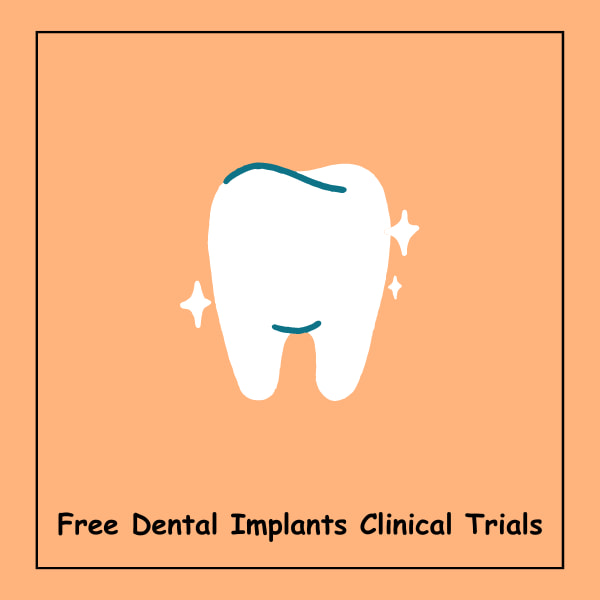
Free dental implant clinical trials present an opportunity for individuals to receive dental implants at reduced or no cost while contributing to dental research.
Conducted by dental schools, research institutions, or dental clinics, these trials aim to evaluate new dental implant techniques, materials, or technologies.
Participants in these trials may receive free dental implants, along with comprehensive dental care, under the supervision of experienced dental professionals.
By participating in free dental implant clinical trials, individuals can access cutting-edge dental treatments while helping to advance dental science and innovation, contributing to the improvement of dental care worldwide.
Financial Assistance for Seniors For Dental Implants
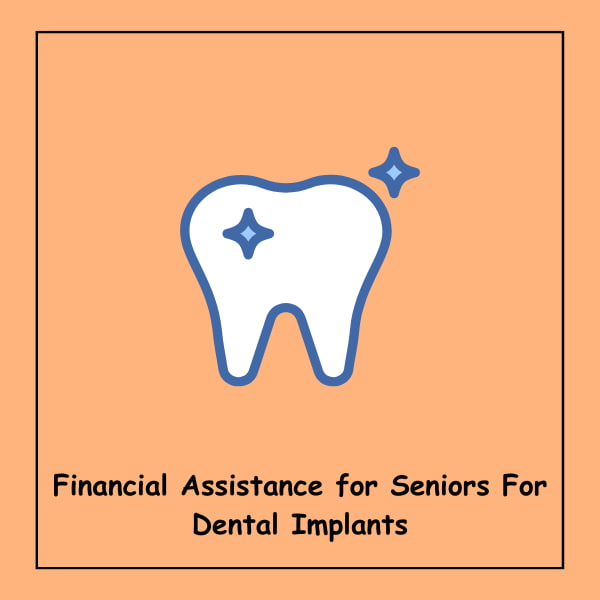
Financial assistance programs for seniors seeking dental implants address the financial barriers that may hinder access to essential dental care.
Many seniors face fixed incomes or limited resources, making dental implants unaffordable.
However, various financial assistance programs, including government-funded initiatives, nonprofit organizations, and dental clinics, offer grants or subsidies to help seniors afford dental implants.
These programs recognize the importance of maintaining oral health and restoring oral function for seniors, promoting overall well-being and quality of life in later years.
By providing financial assistance for dental implants, these programs ensure that seniors can access the dental care they need to maintain their oral health and overall well-being.
In Missouri, Do Seniors Receive Any Additional Assistance?
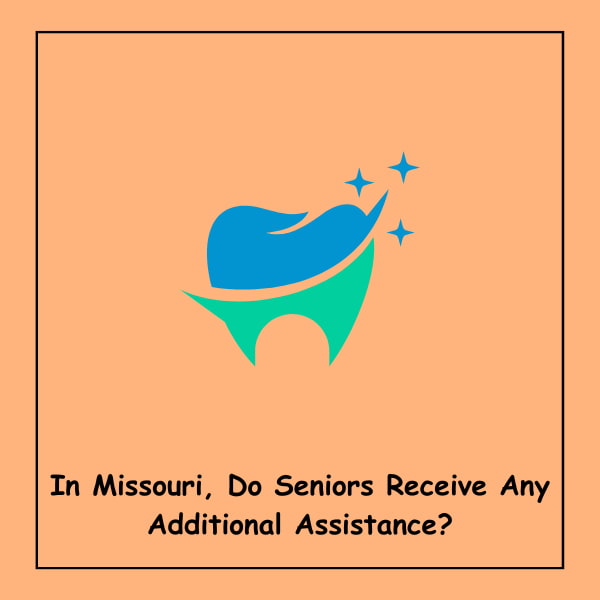
Yes, seniors in Missouri have access to various additional assistance programs to address their unique dental needs.
One such program is the Missouri Department of Health & Senior Services, which offers specialized dental care services tailored for seniors.
These services may include comprehensive dental exams, cleanings, fillings, and denture fittings, among others.
Additionally, seniors may qualify for financial assistance programs specifically designed to help cover the costs of dental treatments.
These programs may include Medicaid for seniors, which provides coverage for essential dental services.
Furthermore, seniors may benefit from community-based initiatives such as mobile dental clinics or outreach programs that bring dental care services directly to senior centers or residential facilities.
These programs aim to improve access to dental care for seniors, promote oral health education, and address any barriers seniors may face in seeking dental treatment.
Free Dental Makeover in Missouri
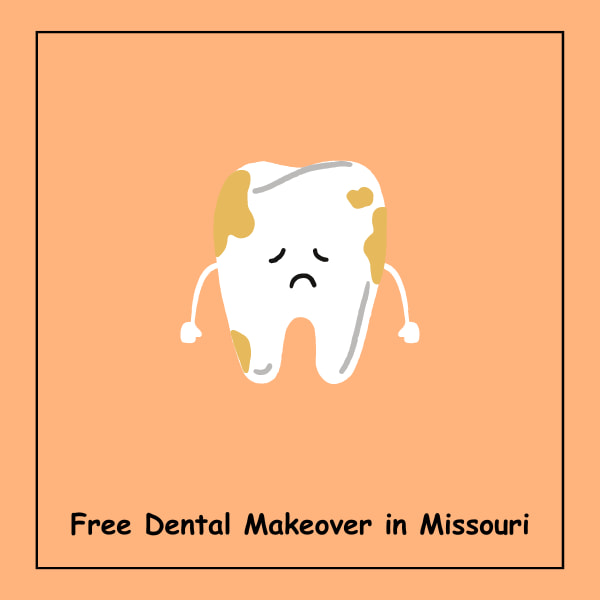
In Missouri, individuals seeking a dental makeover may have the opportunity to receive free or discounted cosmetic dental services through various channels.
Nonprofit organizations dedicated to improving oral health and enhancing smiles may offer programs that provide free dental makeovers to eligible individuals.
Additionally, dental clinics affiliated with dental schools or training programs may offer discounted cosmetic dental treatments performed by dental students under the supervision of experienced faculty.
These treatments may include teeth whitening, dental veneers, dental bonding, or orthodontic procedures.
Individuals interested in a free dental makeover should inquire about available programs in their area and explore eligibility criteria to determine their suitability for such services.
Free Emergency Dental Clinics are also available in Missouri
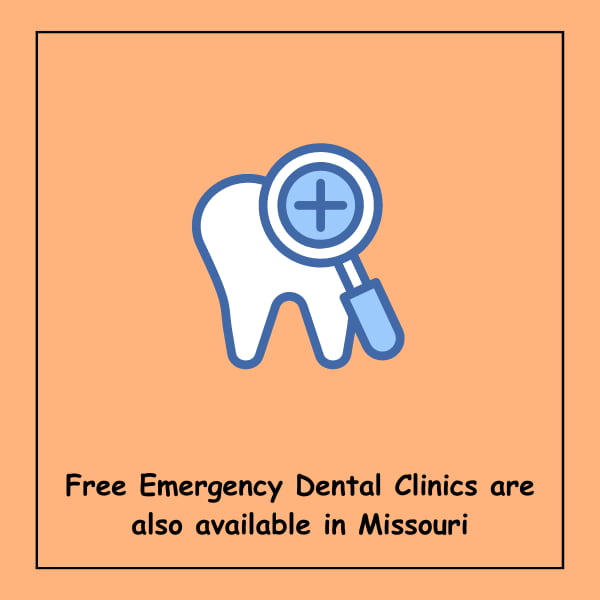
For individuals in Missouri experiencing dental emergencies, free emergency dental clinics serve as crucial resources for accessing timely and affordable dental care.
These clinics are often operated by nonprofit organizations, community health centers, or charitable foundations and are designed to provide urgent dental treatment to individuals in need.
Services offered at free emergency dental clinics may encompass a wide range of emergency dental procedures, including extractions, root canal therapy, treatment for dental abscesses, and temporary restorations.
By offering free emergency dental care, these clinics aim to address dental pain and discomfort promptly, prevent the escalation of dental problems, and ensure that individuals receive the necessary treatment regardless of their financial circumstances.
When Searching for Donated Dental Services in Missouri
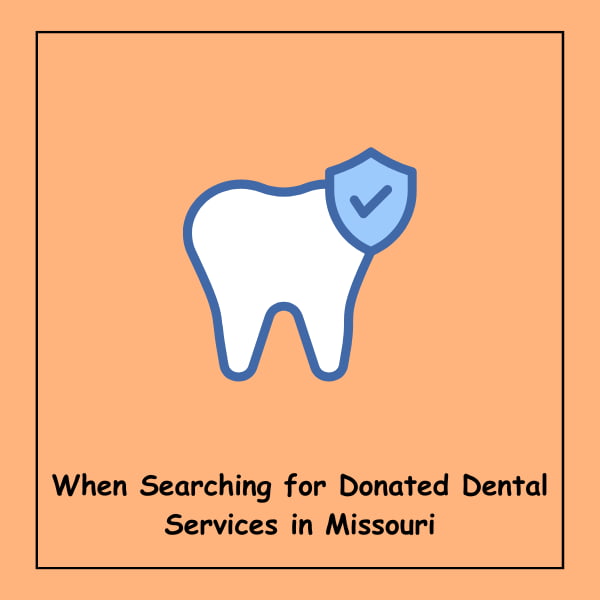
When searching for donated dental services in Missouri, individuals can explore various avenues to find assistance tailored to their needs.
One option is to contact local dental clinics or community health centers to inquire about available programs or initiatives offering donated dental services.
These clinics may partner with nonprofit organizations or charitable foundations to provide free or low-cost dental care to individuals in need.
Additionally, individuals can reach out to dental schools or training programs in Missouri, as they may offer donated dental services through their clinics or outreach programs.
Another resource is to utilize online databases or directories that list dental assistance programs available in Missouri, allowing individuals to easily locate and access donated dental services in their area.
Furthermore, individuals can contact state or local health departments or social service agencies for information and referrals to organizations or programs offering donated dental services.
By exploring these options and reaching out to relevant resources, individuals in Missouri can find the donated dental services they need to maintain their oral health and well-being.
Conclusion
In conclusion, dental grants and assistance programs play a vital role in ensuring access to essential dental care for individuals in Missouri, particularly those facing financial challenges or barriers to accessing dental services.
Through various programs and initiatives, including the DDS (Donated Dental Services) program, individuals can receive financial assistance or donated dental services to address their dental needs, ranging from routine check-ups and preventive care to complex dental procedures such as dental implants or cosmetic treatments.
Additionally, free dental clinics, community-based initiatives, and outreach programs further contribute to improving access to dental care for underserved populations in Missouri.
By leveraging these resources and support systems, individuals can maintain their oral health, enhance their quality of life, and achieve healthy smiles for years to come.
[the_ad id=”39205″]
Frequently Asked Questions (FAQ):
Who Qualifies for Dental Grants in Missouri?
Eligibility criteria vary among programs but may include low-income individuals, seniors, persons with disabilities, and residents of underserved areas. Some programs may have specific requirements based on age, insurance status, or special circumstances.
Are There Free or Low-Cost Dental Clinics in Missouri?
Yes, several clinics operated by nonprofit organizations, community health centers, or dental schools offer free or low-cost dental services. These clinics may provide preventive care, exams, cleanings, and other essential dental treatments.
Which Organizations or Charities in Missouri Help with Dental Costs?
Local organizations, charities, and community foundations may offer assistance with dental costs. These resources can provide financial aid, vouchers, or subsidies to cover the expenses of dental treatments for individuals in need.
How Do I Apply for a Dental Grant in Missouri?
The application process varies by program, but generally involves researching eligible grants, reviewing specific criteria, gathering required documentation, completing an application form, and submitting it to the respective dental grant program. Follow-up and waiting for notification are also crucial steps.
Are There Dental Grants Specifically for Seniors in Missouri?
Yes, seniors in Missouri may qualify for financial assistance programs, including Medicaid for seniors, specialized dental care services, and community-based initiatives that address the unique dental needs of the elderly population.
What Dental Services Are Covered by Free Dental Grants in Missouri?
Dental grants may cover a range of services, including preventive care, restorative treatments, cosmetic procedures, dental implants, and emergency dental care. The specific services covered depend on the program and its focus.
Can Disabled Individuals in Missouri Receive Free Dental Implants?
Yes, various programs and assistance initiatives may provide free dental implants for disabled individuals in Missouri. These programs aim to address financial challenges and ensure access to essential dental care for individuals with disabilities.
How Can I Find Donated Dental Services in Missouri?
Individuals can explore options such as contacting local dental clinics, community health centers, or dental schools, utilizing online databases or directories listing dental assistance programs, and reaching out to state or local health departments for information and referrals to organizations offering donated dental services.
Are There Free Dental Implant Clinical Trials in Missouri?
Yes, individuals may have the opportunity to participate in free dental implant clinical trials conducted by dental schools, research institutions, or dental clinics. These trials aim to evaluate new dental implant techniques while providing participants with reduced or no-cost dental implants.
How Do I Find Emergency Dental Clinics in Missouri?
Free emergency dental clinics can be located by contacting nonprofit organizations, community health centers, or charitable foundations. These clinics focus on providing urgent dental treatment, including extractions, root canal therapy, and temporary restorations, to individuals experiencing dental emergencies.


